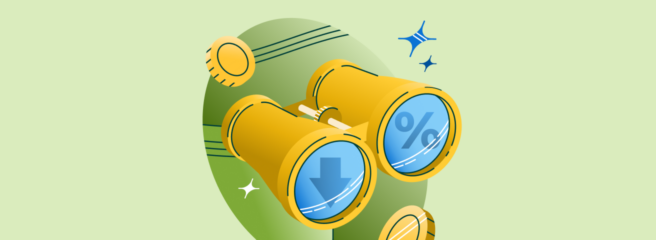
If you’ve shopped around for a loan, you may have come across secured and unsecured loans. It’s important to understand the differences between the two as one loan may be better suited for your financial situation and needs.
Knowing these differences—such as the likelihood of getting approved, the interest rate, and putting up other property you own as collateral—can give you peace of mind before you commit to applying for one loan over the other.
Here’s what you need to understand before making your decision.
What is an unsecured loan?
An unsecured loan is money you borrow from a lender or financial institution. You need to apply and get approved before receiving the funds. An unsecured loan doesn’t require borrowers to put up collateral, such as a house or car, in order to get approved for the loan.
Lenders sometimes ask for collateral because it gives them peace of mind that you will pay the loan back, and if you don’t, they can seize your house, car, or other property. Because unsecured loans don’t require you to put up collateral, they are considered riskier for lenders. This means interest rates on unsecured loans may be higher.
Just like other loans, you agree to a certain length of how long you will take to repay the loan—also known as terms. The term also includes the type of interest rate, fixed (which stays the same over the life of the loan) vs. variable (may fluctuate with the market).
If, for whatever reason, you default on the loan or can’t pay it back, you risk damaging your credit and may have to deal with credit agencies if it goes to collection. A lower credit score may make it harder to get approved for other types of credit in the future.
To sum up:
- Advantage of an unsecured loan: You don’t need to put up your property or other assets as collateral
- Disadvantage of an unsecured loan: You may pay a higher interest rate
What about a personal loan?
Personal loans are a type of unsecured loan and a convenient way to pay for a particular expense, such as paying off high-interest credit cards or a medical bill. They can be used for just about anything.
The amount you borrow can range anywhere from $1,000 to $50,000 or more, depending on your credit score, financial standing, and the state in which you live. The term, or length of time that is required to pay back the loan, may vary from one to six years.
The interest rate you receive on unsecured personal loans often depends largely on your credit score. The better your score, the lower the interest rate.
Unsecured loans come in many forms. Besides personal loans, these are other types of unsecured loans:
- Personal lines of credit
- Credit cards
- Student loans
- Some home improvement loans
What is a secured loan?
A secured loan is the opposite of an unsecured loan, as it requires collateral from you and if you can’t repay it, the lender or bank can seize the collateral you use to back the loan. The lender maintains this right until the loan is paid in full.
Simply put, the collateral is like a promise to the lender that the loan will be repaid. Some examples of what may qualify as collateral include:
- House, condo, or other real estate
- Bank accounts such as checking accounts, savings accounts, CDs and money market accounts
- Vehicles
- Stocks or mutual bonds
You may be able to get a lower interest rate with a secured loan, as long as your credit is in good shape.
These are a few examples of secured loans:
- Mortgage
- Home Equity Line of Credit (HELOC)
- Vehicle loans
- Secured credit cards
To sum up:
- Advantage of a secured loan: Potentially a lower interest rate and higher limit on the amount you can borrow.
- Disadvantage of a secured loan: You’ll lose your collateral if you can’t repay the loan.
What to know before you take out a loan
No matter what kind of loan is best for your situation and goals, be sure you have a plan to pay off the debt. Figure out how long it will take you to repay the loan. Also, find out if the lender charges an early repayment fee, which is an extra charge you would incur if you decided to pay the loan off early and in full.
As you shop around, be mindful of the terms—a longer term means you may have less to repay each month, but the overall amount of the loan will likely be more expensive.







 Won't affect your credit score¹
Won't affect your credit score¹